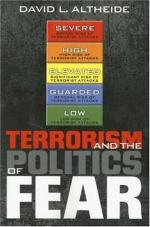|
This section contains 428 words (approx. 2 pages at 300 words per page) |

|
The first few years of the twenty-first century have been marked by the never-ending threat of terrorism. As terrorist acts leave people throughout the world feeling vulnerable and fearful, many have begun to wonder if the international community should use torture to extract confessions and information from suspected terrorists to thwart future terrorist attacks.
Although the UN Geneva Convention Against Torture prohibits all types of torture, the practice has been used against terrorist suspects, including in Israel, which has since disallowed such procedures, and Great Britain. Physical torture has traditionally been forbidden in the United States on the grounds that it violates the constitutional ban on “cruel and unusual punishment.” Despite this official ban, the United States has not been immune from charges that it uses less-than-savory methods when questioning suspects. For example, Amnesty International has criticized...
|
This section contains 428 words (approx. 2 pages at 300 words per page) |

|




